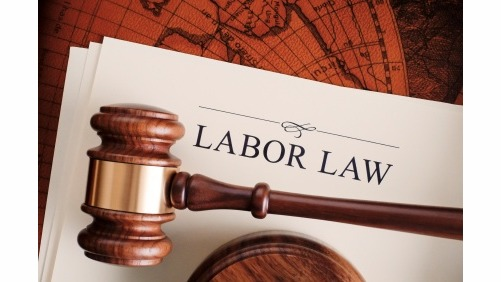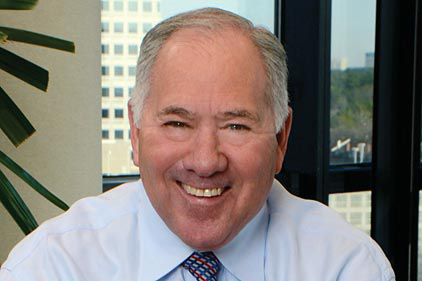The Department of Labor (DOL) reported that in 2021, 10.3% of the nation’s workforce, about 14 million workers, was unionized. This number drops to 6.1% for 2021. These are the lowest percentages since the passage of the National Labor Relations Act (NLRA) in 1935, which governs relations between unions and employers. It is enforced by the National Labor Relations Board (NLRB or Board), a federal agency directed by a 5-member board appointed by the President.
At their highpoint in the 1950s, unions represented about one-third of all workers. Union membership has steadily declined since that time, with the numbers dropping off in earnest beginning in the early 1980s. Unions have been unsuccessful in organizing even a single facility of either of the world’s two largest retailers, Wal-Mart and Amazon, despite years of effort. Unions have also, in recent years, lost high-profile campaigns to organize a large Boeing aircraft assembly plant in South Carolina and at Volkswagen and Nissan plants in Tennessee.
Unions have had some success in organizing tech employees in several media-related companies and very recently at two Starbucks stores, and have announced planned elections at 15 other Starbucks locations in several states. Unions have also successfully organized a handful of fast-food franchises, primarily on the East Coast. Unfortunately, such small victories have done little to reverse their deteriorating membership rolls.
One of Biden administration’s primary means of achieving its goal to help resurrect unions is through personnel appointments to the NLRB. President Biden appointed former union attorneys to a majority of the positions on the Board. As the General Counsel and chief enforcement officer, he appointed another longtime union lawyer, Jennifer Abruzzo.
The decidedly pro-union Board has already begun reversing many of the pro-employer rules and decisions passed by the Trump-appointed Board. Ms. Abruzzo is currently challenging over a dozen such precedents. The Board will almost certainly reinstate the so-called “quickie election” rules that permit an election to be conducted as quickly as 10 days after a union files its election petition.
This prevents employers from mounting an effective campaign to inform employees about what unionization could mean for their workplace. The Board is also reviewing a case that could overturn precedent limiting unions’ ability to carve out and organize small groups, so-called “micro-units,” such as a single department, instead of the traditional unit comprising an entire facility.
Additionally, the Board is closely scrutinizing union election losses for grounds that could overturn the results. The Board overturned a recent union loss in the highly publicized Amazon warehouse election in Bessemer, Alabama and ordered a new election based on what it determined to be employer misconduct. Employers should expect other pro-union measures such as those that would permit greater union access to workplaces and more restrictions on employer responses to unionization campaigns.
Legislative action is another avenue available to the Biden administration to try to reverse union’s fortunes. Unions have for years argued that labor laws, particularly the NLRA, favor employers. Past efforts to pass pro-union legislation have consistently failed. For example, during the Clinton administration unions sought to pass the Workplace Fairness Act, which would have designated the acts of hiring or threatening to hire replacements for economic strikers an unfair labor practice.
It was blocked by a threatened Senate filibuster. In 2009, Senate Republicans also blocked The Employee Free Choice Act, commonly referred to as “card check,” which would have, among other things, abolished secret ballot elections and replaced them with a process that only required signature cards. The Protecting the Right to Organize Act (PRO Act) is the current attempt at legislative action.
President Biden touted it heavily during his campaign as a rewrite of federal labor law making it easier for unions to organize. It would tilt the playing field in favor of unions by eliminating right-to-work laws, outlaw meetings where employers speak against unionization (“captive audience” meetings), impose monetary fines for employer unfair labor practices, impose personal fines on company executives who interfere in elections, compel arbitration in cases of inability to agree on the terms of a first contract, permit secondary boycotts, and re-define the term “independent contractor” to make more workers “employees” subject to unionization, among other changes.
The Democratic-controlled House passed the PRO Act in 2020, but the Senate has never taken it up. It is unlikely to ever become law. However, to hedge their bets, Democrats were able to include the PRO Act’s monetary penalties in the “Build Back Better” reconciliation bill. That measure has also been blocked in the Senate, at least for the present.
While the AFL-CIO, the umbrella organization over most unions, has recently been touting a 2021 Gallup poll which showed that 68% of respondents supported unions, their sinking numbers tell a different story. It appears that in the case of most employees, agreement with the concept of unions in principle does not translate into a willingness to vote a union into their workplaces.
Until unions can successfully bridge the gap between general perceptions and personal acceptance, union’s slide into irrelevancy is likely to continue.
====
Rick Alaniz, JD, of Alaniz Associates, has been at the forefront of labor and employment law for over forty years. He began his legal career as a trial attorney with the U.S. Department of Labor, served on the President’s Cost of Living Council during the Nixon Administration and also held prominent posts within the National Labor Relations Board, first in Washington D.C. and later in Minneapolis where he coordinated the NLRB’s enforcement actions in the five-state Midwestern region.
Thanks for reading CPA Practice Advisor!
Subscribe Already registered? Log In
Need more information? Read the FAQs





